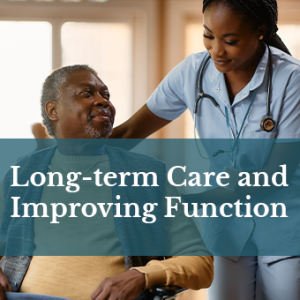
Exploring good care to older persons through presence practices: design, development and evaluation of an intervention
Presenter(s):
Petro Benadé, North-West University, South Africa
Abstract
Background: Worldwide the number of older persons that need good care is increasing. Simultaneously older persons are neglected and even abused in the community, residential facilities, and in hospital. Presence is a practice that has the potential of promoting good care to older persons. No intervention could be found that was designed, developed, and evaluated in the South African context (a developing country) using the Design and Development (D&D) model of Rothman and Thomas (1994), by combining empirical research with literature – indicating the unique contribution of this study.
Objectives: The objectives of this study were to explore and describe the perceptions of managers, nurses and caregivers, and older persons regarding good care to older persons; to explore and describe the best available evidence regarding good care to older persons through presence practices; and to design, develop, and evaluate an intervention for managers, nurses, and caregivers to promote good care to older persons through presence practices.
Methods: The D&D model was used for the research design. The research was conducted in the three phases: Phase 1: problem analysis and project planning: a qualitative descriptive design was followed to explore and describe perceptions of managers (n=7), nurses and caregivers (n=35), and older persons (n=48) regarding good care to older persons, using naive sketches. Demographic information was provided. Phase 2: information gathering and synthesis: a systematic review was conducted to explore and describe presence practices that promote good care to older persons. Phase 3: design, development, and evaluation: the intervention, namely a programme, was designed, developed, and formatively evaluated by a panel of experts (n=8) who provided demographic information.
Findings: An intervention, namely a 31-day in-service presence training programme followed on duty, was designed, developed, formatively evaluated, and refined. Phases 1 and 2 formed the foundation for the programme. Phase 1: Good care to older persons includes providing holistic care to older persons; recognising their individuality and autonomy; upholding values associated with good care; building good relationships with older persons; challenges in providing good care; and opportunities to address these challenges. Phase 2: a presence definition in the older persons’ context; presence practices; a definition for good care as an outcome of presence practices; older persons’ and nurses’ outcomes of good care through presence practices; and functional elements of programmes/interventions to facilitate presence. Phase 3: The programme contains a PowerPoint presentation; presence facilitator instruction manual; ‘Presence and good care for older persons: A programme to facilitate presence practices’; and reflective journal.
Conclusions: Perceptions of managers, nurses and caregivers, and older persons regarding good care to older persons provided an understanding of good care that was synthesised with the findings of the systematic review. This synthesis was used to design and develop the programme that was formatively evaluated by a panel of experts and refined. This programme can now be used to facilitate presence practices and provide good care through relational care to older persons.
Keywords: Older person, presence, presence practices, good care, relational care, programme, systematic review, “good care through relational care”
Bio(s):
Name and surname: Petro Benadé
Affiliation: North-West University (NWU), Lecturer: School of Nursing, Community Health including Geriatric nursing.
Experience: Theoretical and practical training in Geriatric Nursing of nursing students and caregivers caring for older persons in the community. Worked as General Manager of a private Retirement Village and temporarily as Nursing Services Manager of an Old Age Home. Provided home-based care to older persons in the community.
Qualifications: Doctor of Philosophy in Health Sciences with Nursing Science at the North-West University (NWU), Master of Nursing Science at the NWU, Nursing Administration and Nursing Education at the University of South Africa (UNISA), BArt et Scien Nursing at the Potchefstroom University for Christian Higher Education (PU for CHE), Psychiatric Nursing at the PU for CHE and Community Nursing Science at the University of Pretoria (UP).
Registration at the South African Nursing Council (SANC): General Nurse, Midwife, Psychiatric Nurse, Community Nursing Science, Nursing Administration, Nursing Education, Assessor and Moderator.
Publications: Two publications in a national journal and one publication in an international journal. Submitted one article from PhD to an international geriatrics journal and in process to submit the other two.
Conference presentations: One international oral conference presentation and one international poster presentation.
